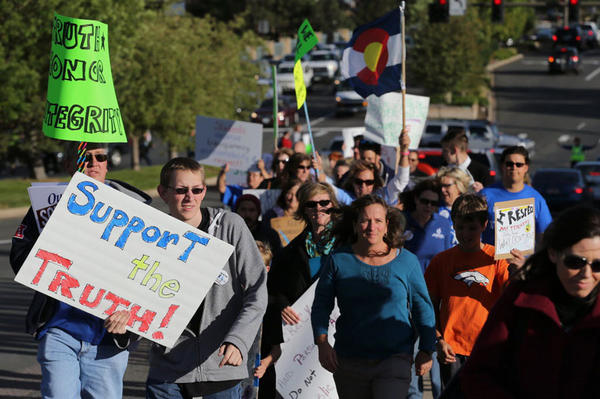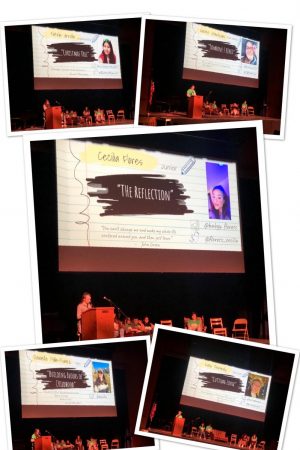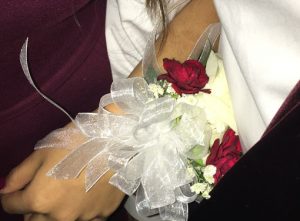Colorado High School Protest

December 4, 2014
Hundreds of Colorado High School students are protesting over their history curriculum. This protest spread all over the U.S and started a debate about whether school districts should be able to censor the material students learn.
The students started protesting because they didn’t want their AP history curriculum to be censored. The alleged censorship occurred after board members reviewed the curriculum and instituted a policy stating that history materials and content could only be used if they didn’t “encourage civil disorder, social conflict or disregard of the law.” According to the district, “the history curriculum should promote citizenship, patriotism, respect for authority and respect for individual rights.”
While such language seems sensible, it poses problems for history and could be seen as putting forth a hyper-conservative agenda. The protesters are taking a stand because the policy drafted by the school board could leave out important lessons in history, such as the “civil disorder” promoted by Dr. Martin Luther King, Jr.
Ms. Johanna Heppeler, Leyden’s own AP U.S. history teacher, had heard about the Colorado High School protests through Twitter, the evening news, and a letter she received from the College Board. Ms.Heppeler stated that “debates about what should be taught in a history classroom are not new. Often the conversations are about ‘what’ to teach and not ‘why’ certain topics are important to learn about.” She also provided her response to the Colorado policy and protests: “Teachers should be intentional in their decision-making about the content they bring into the classroom. If the content is ‘unpleasant’ but serves a purpose, it should be included.”
And according to Ms.Heppeler, leaving out the unpleasant moments is not possible in her subject: “History, by definition, is argument without end. Historians create an interpretation of past events using evidence and reason to support that interpretation. In order to create opportunity for students to learn about the past, they need to encounter the past, the good and the bad. My goal is to empower students to create their OWN interpretation of what really happened in the past.”
Junior Natalia Baniak is currently taking AP U.S. history and stated that she completely agrees with the students’ protest. According to Baniak, “schools should provide each student with equal opportunity to access any knowledge they want to learn, and students should learn as much as they possibly can about any topic.” Baniak agrees with the protesters because in history “every country has done something that we would consider ‘wrong’ and we could use those events to help shape a better society.”







